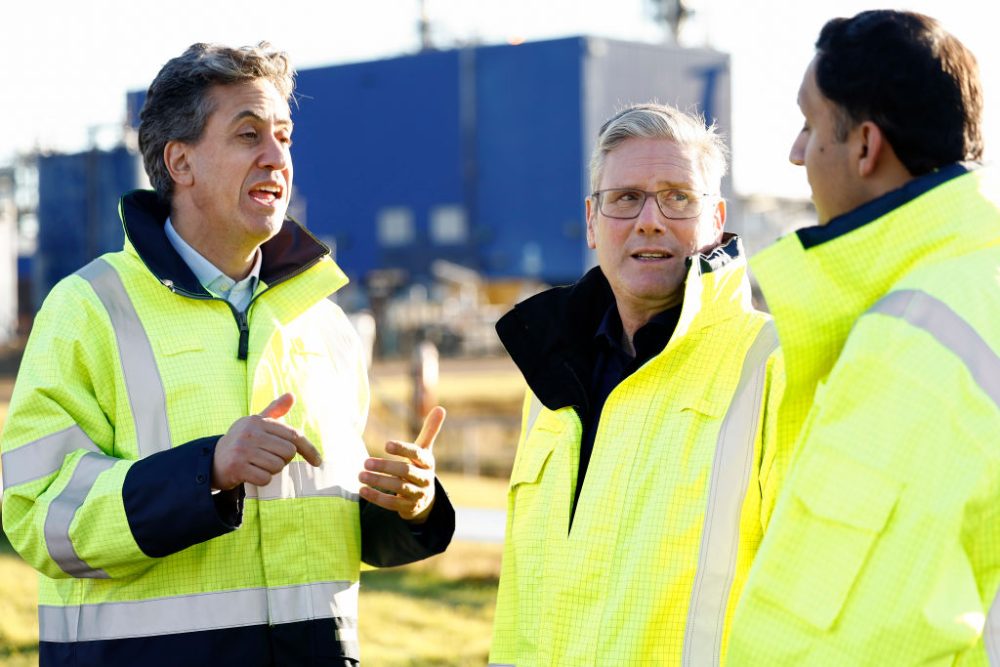How Labour can deliver an industrial renaissance
Energy transition can be economic transition, writes Aniruddha Sharma, Chair & CEO of Carbon Clean Blink and you could have missed it, yet a brief sentence in the King’s Speech in July signalleda huge statement of intent in generating economic growth. The new government’scommitment to establishing an Industrial Strategy Council sent an encouraging signal tobusiness. [...]


Energy transition can be economic transition, writes Aniruddha Sharma, Chair & CEO of Carbon Clean
Blink and you could have missed it, yet a brief sentence in the King’s Speech in July signalled
a huge statement of intent in generating economic growth. The new government’s
commitment to establishing an Industrial Strategy Council sent an encouraging signal to
business.
The all-important detail is still to come, but coupled with the Industrial Strategy, there is a real
potential for a UK-wide industrial renaissance. Chancellor Rachel Reeves revealed during the
Labour Conference that a green paper will be published around the October Budget and the
final Industrial Strategy will be published in Spring 2025, following a consultation with
business. In welcome news last week, the Government committed £22bn to investment in UK
carbon capture and storage (CCS) projects, a positive signal for the country’s highly
innovative CCS sector.
A successful strategy for industrial growth must have decarbonisation at its core. For too long,
industrial decarbonisation has been viewed as separate to economic growth. But it is a
catalyst for turbocharging the economy, as well as achieving vital global emissions reduction
targets. This is a compelling opportunity to build and fast-track multiple new industries,
creating thousands of clean tech jobs in the UK.
To date, the energy transition has been a huge focus – and rightly so. However, this has often
been viewed as a standalone target not closely linked to the discussions around economic
transition. Attention urgently needs to shift towards expanding the UK’s decarbonisation
supply chains and manufacturing facilities, as well as a plan of action for skilling – and
reskilling – our workforce.
Innovative clean technology, such as carbon capture, utilisation and storage (CCUS) is a vital
decarbonisation lever. Crucially, it is also a driver of economic growth, job creation and
exports. The UK is home to highly innovative, rapidly growing businesses in this sector that
are driving decarbonisation and significantly investing in R&D. But they need support to fully
commercialise their technology.
Stable, predictable policy incentives are essential for crowding in the necessary private sector
investment that leads to scalability and widespread adoption, as we have seen with the
successful mass production of solar panels and EV batteries. This is exactly where CCUS
technology is heading.
The US has set the gold standard in incentivising industrial decarbonisation with the Inflation
Reduction Act, which came into force in August 2022. There are explicit tax credits that
incentivise manufacturing – encouraging the emergence of new factories – and there are
provisions for clean energy, as well as labour rights.
Early movers and first adopters are key to technological advancements. My hope is that the
Industrial Strategy Council will encourage initiatives that stimulate investment in first-of-a-kind
(FOAK) projects. Lessons learned from these pioneers will accelerate commercialisation.
As with solar panels and EV batteries, repeatability is the key to mass adoption. In carbon
capture, the sector could do with more democratisation of the infrastructure. We do not have
the time for singular bets on very large, complex projects that can take numerous years to
deploy. Modular, replicable designs with a substantially smaller footprint hold the key to
faster, at-scale rollout.
Imagine CCUS being embedded as an integral part of a UK-wide or even global datacentre
rollout. The increased adoption of artificial intelligence (AI) is leading to a surge in emissions
due to the huge energy requirements of datacentres. Deploying carbon capture technology in
parallel with new gas-based power generation infrastructure to cater for the datacentre
growth will be essential in achieving overall emissions reductions. This is where compact
modular carbon capture units with a standardised ‘plug and play’ design can have a real
impact.
With the right signals and support, such as the £22bn commitment, innovative clean tech that
is designed in the UK could be deployed globally by the end of the decade. The opportunity
for the UK to become a world leader in low-carbon manufacturing is too huge to overlook. I
see the Industrial Strategy Council as a force for unlocking economic growth – it has my full
support.

